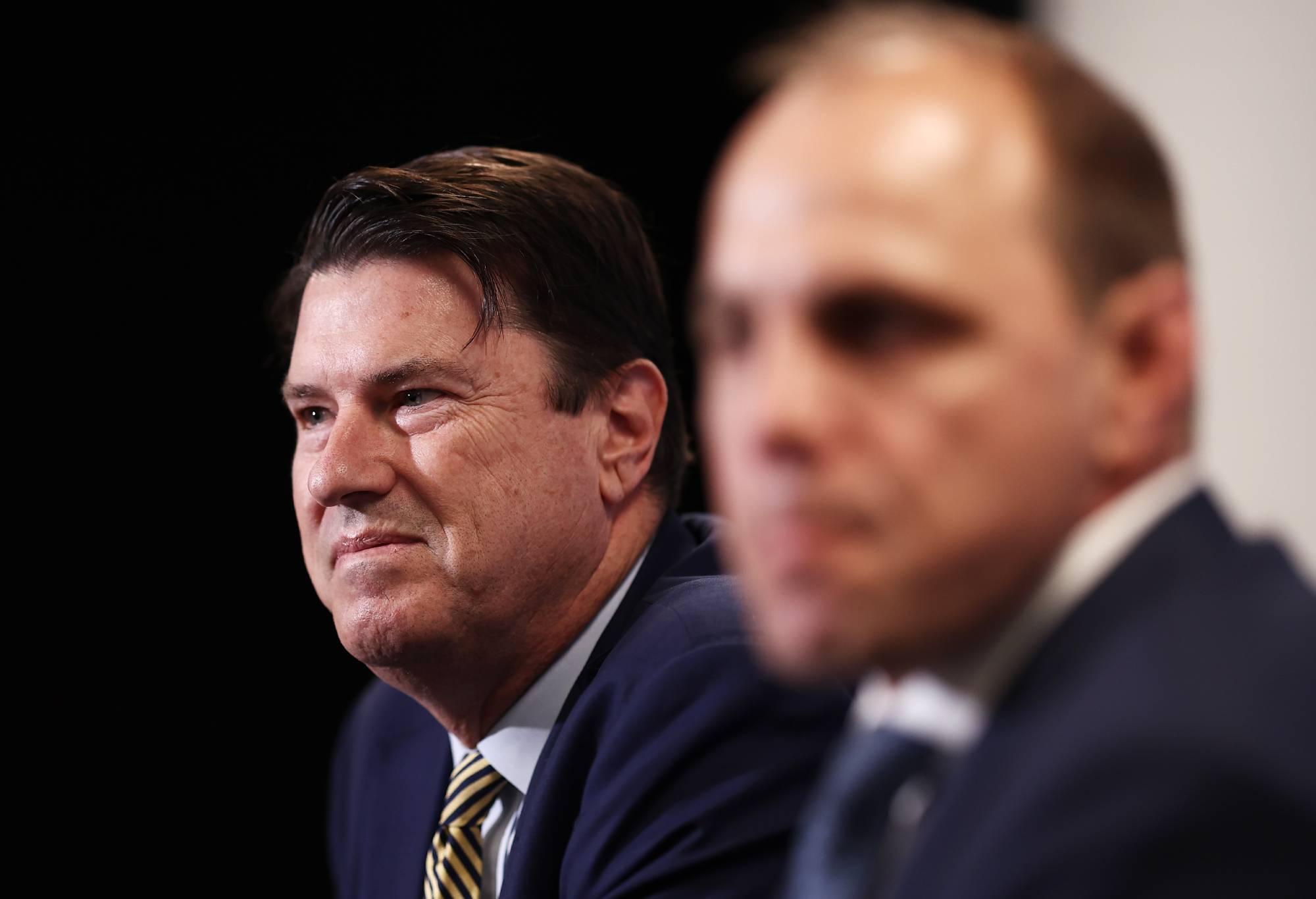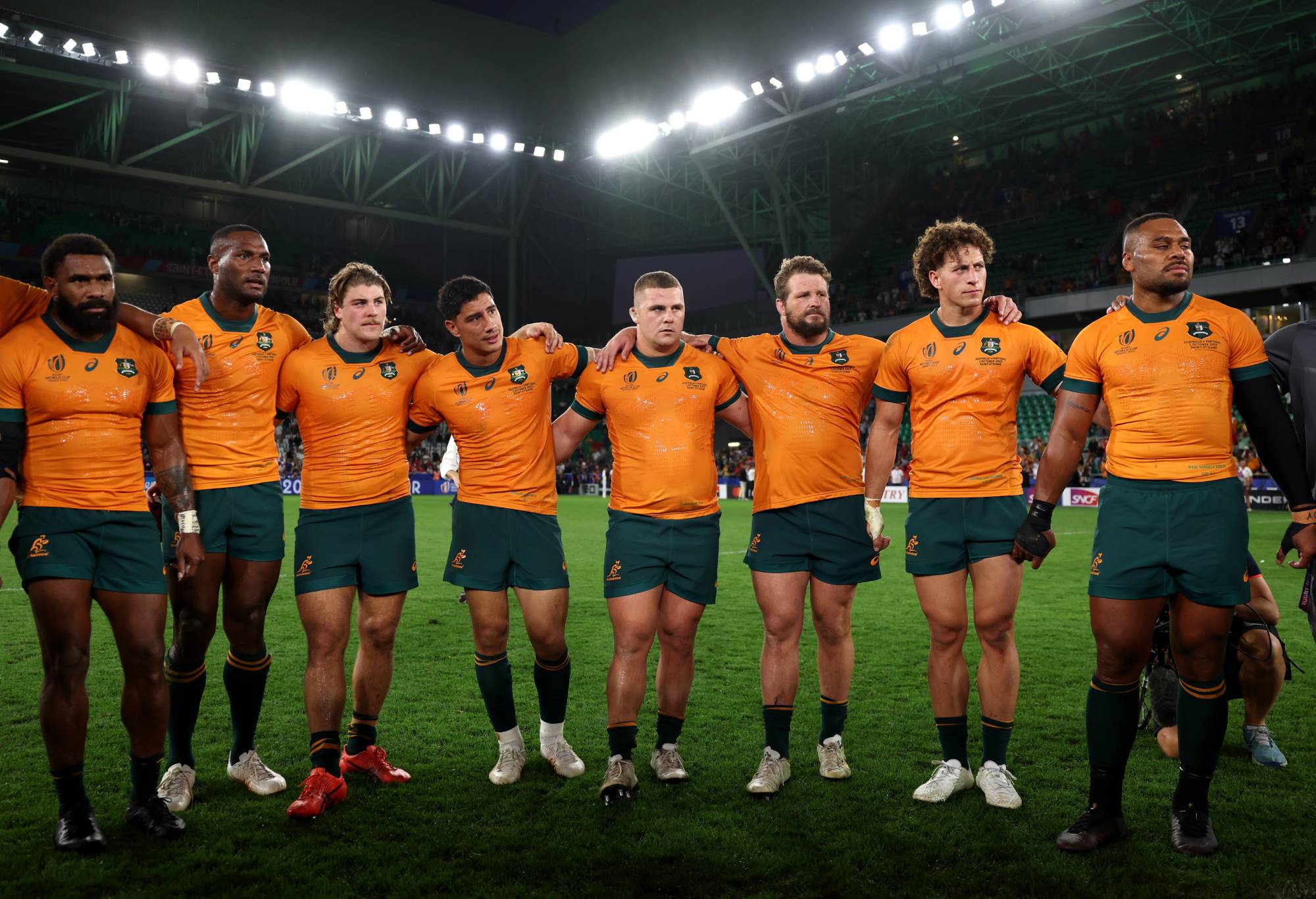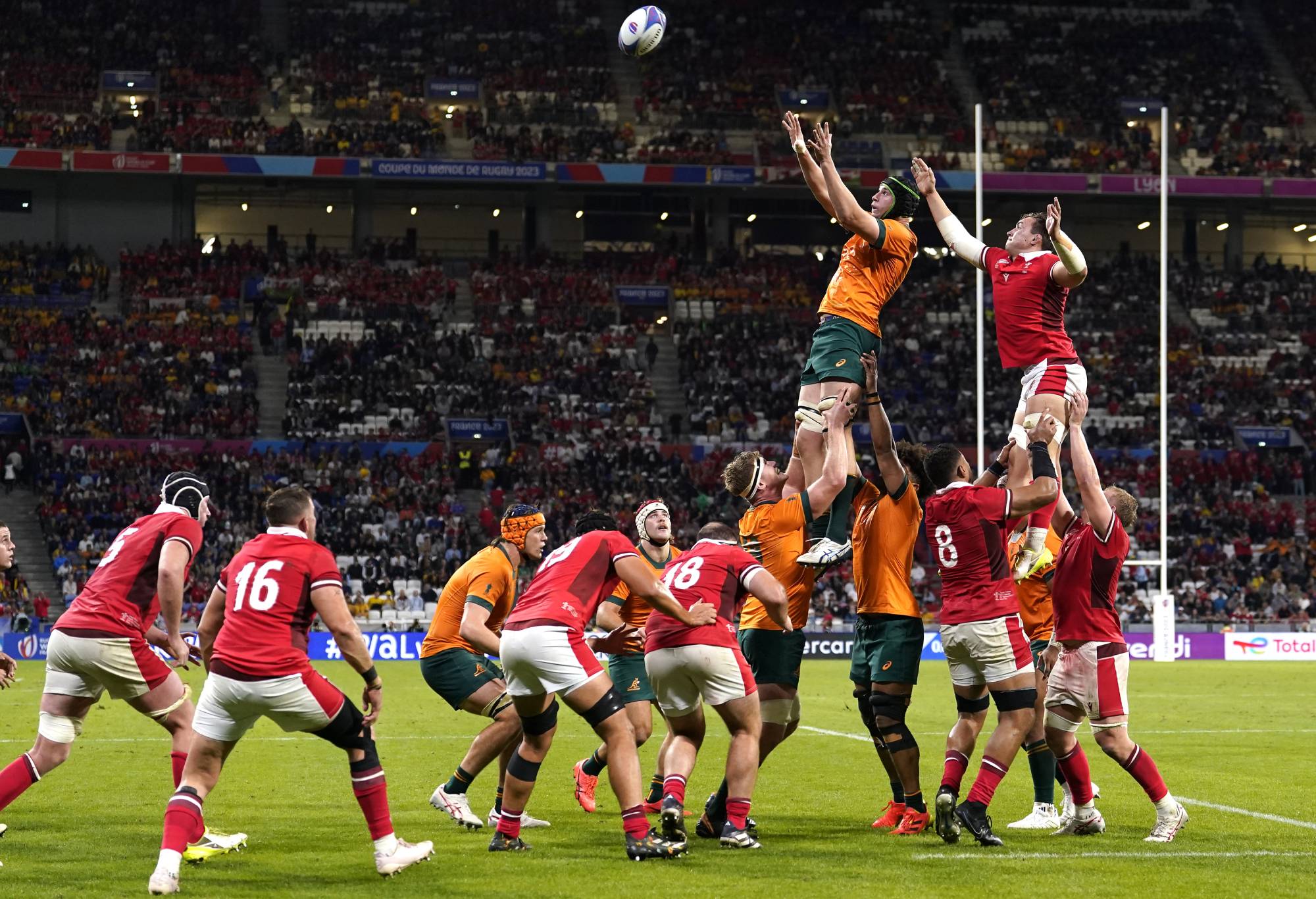PARIS – Dick Marks – the former Wallaby turned long-time Australian National Coaching Director – has put the Wallabies’ failed World Cup campaign down to a “broken system” and implored Rugby Australia to look inwards rather than copy any other centralised model.
The governing body will conduct a review into the Wallabies’ World Cup flop, which saw them miss the knockout stages for the first time, in November.
The review will come less than a year after RA held its last, which has yet to be made public, and came after the Wallabies won just five of 14 Tests.
The poor results culminated in RA chairman Hamish McLennan pulling the trigger on New Zealand coach Dave Rennie in January, with Eddie Jones, who had been sacked less than six weeks earlier by the Rugby Football Union after seven years in charge of England, returning as Wallabies coach.
But the Wallabies’ World Cup campaign was a disaster from start to finish, as they claimed just two wins from nine matches throughout the year. The only two victories were against nations ranked outside the top 10, as they beat Georgia and Portugal comfortably.

Dick Marks says Rugby Australia’s review into the Wallabies’ World Cup flop must be independent. (Photo by Matt King/Getty Images for Rugby Australia)
The terrible year has led to many urging RA chairman Hamish McLennan, who was the catalyst for bringing Jones back as coach, to resign.
There have also been calls for Jones to either be sacked or fall on his sword, particularly with the Wallabies coach reportedly speaking to the Japan Rugby Football Union on the eve of the World Cup. The subject matter of the interview remains unclear, with Jones distancing himself from the report.
RA believes the Wallabies’ failed World Cup campaign is the result of systemic issues in the game, which need to be addressed.
The governing body believes greater alignment, specifically a move towards a centralised model, is essential to getting the game back on track from top to bottom.
RA claims that multiple reports dating back to 2008 have all suggested the same course of action.
Currently, the NSW Waratahs have agreed to hand over the keys to the governing body while the Melbourne Rebels are also considering going down that path. The Waratahs’ threat of insolvency played a key part in that.
Others, including the ACT Brumbies and Queensland Rugby Union, have agreed to move to a centralised high-performance program but won’t agree to handing over its commercial assets.

The Wallabies form a huddle following their last match of the 2023 Rugby World Cup against Portugal on October 01, 2023 in Saint-Etienne. (Photo by Chris Hyde/Getty Images)
Marks, however, believes several solutions can be found without the power resting with the governing body.
Indeed, he puts the Wallabies’ slide from two-time World Cup winners in the 1990s to World Cup flops down to “the dismantling of a productive system and (II) the installation of the wrong people to govern.”
“We had the rugby world coming to us to discover how it was done, now we are looking at their success to see how they did it,” Marks wrote in a report titled ‘Solutions to Australian Rugby problems’ that was sent to The Roar.
“The irony of this is that we don’t really have to do that – just revert to what was done before in our own history and go from back to the principles that worked for us in the past.
“The leaders of Australian Rugby have indicated that they are undertaking a review of the dire situation. That’s a good idea but I have decided to conduct my own and share it in the hope that it might assist the official one. I don’t profess to have all the answers but I can ask a lot of the questions and certainly identify the issues.
“The downfall has been due to a broken system but it must also be due to the people who broke it or have failed to repair it and that is the reason for my comments about administration.”
Marks, who started Australia’s National Coaching Scheme in 1974 after the Wallabies slumped to a new low after losing to Tonga and was its director until 1995, supported RA’s desire to have a review but said the governing body could make some simple and crucial fixes to the game.
“The last thing the review needs is an outcome involving buzzwords, platitudinous generalities or catchphrases like centralisation, restructuring, unification or independent boards – just get down to the nitty gritty of participation in our nurseries, coach education and the quality of our competitions,” Marks wrote.
“No matter what you call the engine, its efficiency will depend on its design and the quality of its essential components. A fully -serviced and well-maintained unit will always out-perform a neglected or badly reconfigured one.”
He added: “The sport needs creative and innovative leaders rather than ones who only think of copying. With all the talk about selling out to private equity to fix things, why can’t the current board do whatever this replacement shark might do?”

Australia and Wales contest a lineout. (Photo by Andrew Matthews/PA Images via Getty Images)
Marks said the review needed to be completely independent, believing the solutions were unlikely to be found by the same people who had been governing the game during its decline.
“The strategies and much of the vital decision-making lies in the vehicle of Rugby Australia which must have the right people in the driver’s and navigating seat. For decades now those people have failed so, it is not just a systemic or programming problem, it is also a personnel problem,” he said.
“As a result, this part of the review must be done by independents as Caesar is not going to be unkind to Caesar. Ignoring mistakes, protecting confected reputations and not being mercilessly honest will render the investigation a whitewash and nothing more than a window dressing exercise.”
Marks was buoyed by Hamish McLennan’s decision to reintroduce the rebranded National Technical Advisory Committee.
Chaired by Geoff Stooke, other well-known rugby figures including Bob Dwyer, Nick Farr-Jones, Wayne Erickson, Roger Gould and Barry Honan sat on the committee.
Marks said the Committee recommended for the appointment of a National Coaching Director exclusively allocated to the job of resurrecting an effective Youth Development Programme and repairing the deficient Coach Education Programme, which would be a substitute for the once highly successful Australian Institute of Sport Elite Youth Development School.
However, Gould and Honan have since left the Committee after seeing their recommendations fall on deaf ears.
“The only problem there being that after submitting its initial report, the new CEO [Andy Marinos] completely ignored it,” Marks wrote.
“The experienced group which would have helped has had virtually no input – three years down the drain.”
Marks says RA would benefit from focussing on addressing three key pillars: participation, coaching and competition.
In light on wealthier football codes making inroads into junior clubs and school nurseries, he said more needed to be done to “incentivize clubs to work on it at local levels as that is more productive for everyone than relying on expensive development officers”.
On coaching, Marks said “Coach Education has deteriorated with the abandonment of residential courses and the substitution of online training. It needs to be restored and it can become better than it ever was with modern technology.”
He advocated for a reconnection with the AIS, which once saw young coaches like Andy Friend and Andrew Blades attend during their playing days.
While Marks did not want to go into detail about how many Super Rugby sides Australia could sustain, he added that greater attention to the grassroots and schools, including the “resurrection of the Waratah Shield”, would be a strong start.































































































